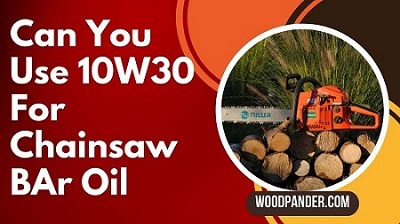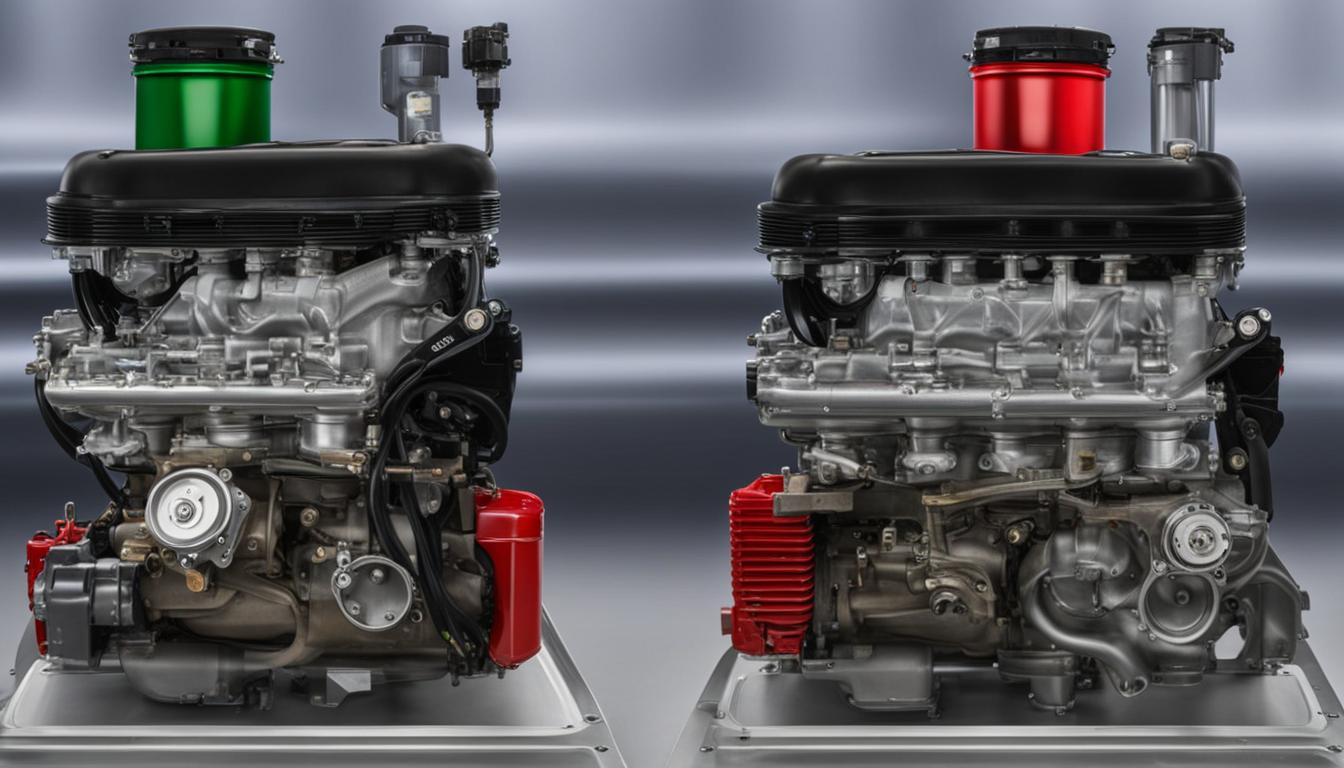When it comes to choosing the right motor oil for your vehicle, it’s important to consider factors such as viscosity, temperature range, and manufacturer recommendations. Many car owners often wonder if they can use a different grade of oil than what is recommended.
In this article, I will address the question: Can I use 15W40 instead of 10W30? We’ll explore the key differences between these two oil grades, discuss their compatibility with various engines, and provide you with helpful insights to make an informed decision.
Can You Use 15W40 Instead of 10W30
In most cases, it is possible to use 15W40 oil instead of 10W30, but it is important to consider factors such as climate, driving conditions, and manufacturer recommendations to ensure optimal engine performance and protection.
One of our articles –Can You Use 10W40 for Chainsaw Bar Oil?
Understanding Viscosity Grades
To comprehend the implications of using 15W40 instead of 10W30, it’s essential to understand viscosity grades.
The numbers in the viscosity grade represent the oil’s viscosity or thickness at different temperatures.
The first number, such as 10W or 15W, indicates the oil’s viscosity at low temperatures, specifically during winter or cold weather conditions.
The second number, for instance, 30 or 40, indicates the oil’s viscosity at high temperatures, typically representative of operating temperatures in a running engine.
Importance of Viscosity in Engine Lubrication
Viscosity plays a critical role in engine lubrication as it determines the oil’s ability to flow and provide sufficient lubrication to engine components.
In colder climates, a lower first number, such as 10W, indicates that the oil has better cold-start flow characteristics, allowing it to circulate quickly and provide immediate protection to engine parts.
On the other hand, the second number, such as 30 or 40, signifies the oil’s ability to maintain its viscosity and provide adequate lubrication under high-temperature operating conditions.
Differences Between 10W30 and 15W40
| 10W30 Oil | 15W40 Oil | |
|---|---|---|
| Viscosity at Low Temperatures | Thinner viscosity for better cold-start performance. | Thicker viscosity, potentially slower flow during cold starts. |
| Viscosity at High Temperatures | Similar high-temperature viscosity as 15W40 oil. | Thicker viscosity for better high-temperature protection. |
| Cold Weather Performance | Ideal for extremely cold climates. | May not perform as well during cold starts. |
| High-Temperature Performance | Offers adequate protection once engine reaches operating temperature. | Enhanced high-temperature protection due to thicker viscosity. |
| Manufacturer Recommendations | Commonly recommended for newer engines and normal driving conditions. | Often recommended for older engines, heavy loads, or high-temperature environments. |
| Fuel Efficiency Impact | Typically offers slightly better fuel efficiency. | May have a slight impact on fuel economy. |
| Compatibility | Widely compatible with modern engines. | Widely compatible with modern engines. |
One of our articles –Can You Use 15W40 For Chainsaw Bar Oil?
Viscosity at Different Temperatures:
The primary difference between 10W30 and 15W40 lies in their viscosity characteristics at different temperatures. The “W” in the viscosity grade stands for winter, and the lower the number preceding it, the better the oil’s cold weather performance.
10W30 oil has a thinner viscosity during cold starts compared to 15W40 oil, enabling it to reach critical engine components faster, reducing wear and tear.
However, once the engine reaches operating temperature, both oils have similar high-temperature viscosities.
Cold Weather Performance:
In regions with extremely cold winters, using 10W30 oil is generally recommended due to its lower first number and superior cold-start capabilities.
The thinner viscosity allows the oil to flow more quickly through the engine, providing better protection during those initial moments when the engine is still cold. 15W40 oil, with a higher first number, may be less effective during cold starts, potentially causing delayed lubrication and increased wear on engine components.
High-Temperature Performance:
When it comes to high-temperature performance, both 10W30 and 15W40 oils offer similar levels of protection once the engine has reached its operating temperature.
The second number in the viscosity grade, such as 30 or 40, indicates the oil’s ability to maintain its viscosity under elevated temperatures. Therefore, if your vehicle operates under extreme heat conditions, both oils can provide adequate protection.
However, 15W40 oil, with its higher viscosity, may offer slightly better protection under sustained high-temperature conditions.
Compatibility and Manufacturer Recommendations
To ensure compatibility and optimal performance, it is crucial to consult the vehicle owner’s manual and adhere to the manufacturer’s recommendations regarding the appropriate oil viscosity.
The manual will specify the recommended viscosity grade, such as 10W30, for your specific vehicle. Following these guidelines ensures that the oil meets the manufacturer’s specifications and provides the necessary protection for your engine.
Additionally, Original Equipment Manufacturers (OEMs) often provide their own recommendations regarding oil viscosity grades.
These recommendations take into account factors such as engine design, tolerances, and intended usage. Therefore, it’s important to consider any specific OEM recommendations before making a switch from 10W30 to 15W40 or vice versa.
Considerations Before Switching
Before considering a switch from 10W30 to 15W40 or any other oil viscosity, there are a few factors to consider:
Climate and Driving Conditions:
The climate in which you primarily drive your vehicle is an important factor to consider. If you live in an area with extremely cold winters, using 10W30 oil is generally more suitable due to its better cold weather performance.
However, if you reside in a region with consistently high temperatures, 15W40 oil may provide better protection under prolonged heat exposure.
Engine Age and Condition:
The age and overall condition of your engine also play a role in determining the ideal oil viscosity. Older engines with looser tolerances and higher mileage may benefit from using slightly thicker oil, such as 15W40, to compensate for increased clearances and potential oil consumption.
However, for newer engines with tighter tolerances, sticking to the recommended viscosity grade, such as 10W30, is often the best choice.
Benefits and Drawbacks of Using 15W40 Instead of 10W30
| Using 15W40 Instead of 10W30 | |
|---|---|
| Viscosity Characteristics | Thicker viscosity oil with better high-temperature protection. |
| Cold Weather Performance | May not perform as effectively during cold starts, potentially slower flow. |
| High-Temperature Performance | Offers enhanced protection under sustained high-temperature conditions. |
| Climate Considerations | Suitable for regions with consistently high temperatures or heavy load conditions. |
| Engine Age and Condition | May benefit older engines with looser tolerances and higher mileage. |
| Manufacturer Recommendations | Often recommended for older engines, heavy loads, or high-temperature environments. |
| Fuel Efficiency Impact | May have a slight impact on fuel economy compared to 10W30. |
| Compatibility | Widely compatible with modern engines, but check manufacturer recommendations. |
Improved High-Temperature Protection:
One potential benefit of using 15W40 instead of 10W30 is enhanced high-temperature protection.
The higher viscosity of 15W40 oil can better resist thinning and maintain its lubricating properties under extreme heat conditions.
This attribute makes 15W40 oil suitable for vehicles operating in hot climates or those subjected to heavy loads or towing.
Potential Fuel Efficiency Impact:
It’s worth noting that using a thicker oil, like 15W40, may have a slight impact on fuel efficiency compared to 10W30.
Thicker oil requires more energy to pump, potentially resulting in a small decrease in fuel economy.
However, this difference is often negligible for most vehicles, and the benefits of improved high-temperature protection may outweigh the minor fuel efficiency impact.
Related Questions
Q: Can I use 15W40 instead of 10W30 in my car?
A: It is generally recommended to follow your car manufacturer’s guidelines. Using 15W40 instead of 10W30 could impact the performance of your car, especially in colder weather conditions. If in doubt, consult your owner’s manual or contact a certified mechanic for advice specific to your vehicle.
Q: Can I mix 10W30 and 15W40?
A: It is not recommended to mix different grades of oil. Mixing oils with different viscosities can alter their performance characteristics and may negatively affect your engine’s lubrication. Stick to using the recommended oil grade for your vehicle.
Q: Can I switch from 10W30 to 15W40?
A: Switching from 10W30 to 15W40 may be appropriate for certain vehicles or driving conditions. However, it is best to consult your vehicle manufacturer’s recommendations or seek advice from a qualified mechanic before making the switch.
Q: Will using 15W40 instead of 10W30 void my vehicle’s warranty?
A: Deviating from the recommended oil grade may potentially affect your vehicle’s warranty coverage. It’s important to review your warranty documentation or consult your manufacturer to understand their specific requirements regarding oil usage.
Q: Is it safe to use 15W40 in a gasoline engine?
A: While 15W40 is commonly used in diesel engines, it is not recommended for use in gasoline engines unless specified by the manufacturer. Gasoline engines have different requirements, and using the wrong oil grade can lead to engine damage or decreased performance.
Conclusion
It’s crucial to follow your vehicle manufacturer’s recommendations for the appropriate oil grade. While 15W40 offers enhanced protection against heat and is suitable for heavier vehicles or severe driving conditions, it may not be the best choice for most passenger cars and light-duty vehicles that require 10W30. Deviating from the recommended oil grade can potentially impact your engine’s performance, fuel efficiency, and longevity.
If you’re unsure about the best oil grade for your vehicle or have specific driving conditions, it’s always recommended to consult your owner’s manual or seek advice from a certified mechanic.
They can provide personalized guidance based on your vehicle’s requirements, ensuring optimal engine protection and performance. Remember, proper maintenance, including regular oil changes using the correct grade, is essential for keeping your engine running smoothly for years to come.








